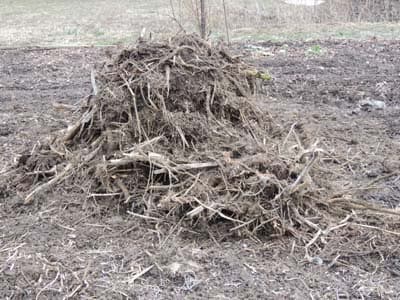What to compost and What Not to Compost

Know Your Organic Compostable Materials
Great news!!! There is a huge number of items that you can compost. But, you must know what to compost, and what not to compost. Identifying compostable materials is the first step of a successful composting project. And everything you put into your compost bin or composter is one less thing that goes into the waste stream. Let’s explore what to put in the compost bin or composter.
Almost any plant matter is a good candidate for composting. Look for yard, garden, and organic kitchen materials, and have not been exposed to chemical pesticides, insecticides, and herbicides. For example, lawn grass clippings are great for composting… until it is treated.
For proper decomposition, use 4 parts Nitrogen (Green) materials, to 1 part Carbon (Brown) materials. More on the proper mix of greens and browns.
Green Materials are Nitrogen Rich
Banana peels, orange peels
Clover
Coffee grounds (it’s okay to toss in the paper filter)
Eggshells have plenty of calcium
Grass clippings, very high in nitrogen
Hay
Hops
Kitchen fruit scraps
Kitchen vegetable scraps
Leftover pizza – remove the pepperoni and sausage
Manures (not pet or human) in small amounts
Pasta and sauce (not the meatballs)
Seaweed(wash off the salt, if taken from the ocean)
Stale bread
Weeds, before going to seed
Note: If your compost project heats up properly, it reaches temperatures that kill weed seeds.
Brown Materials - Carbon
- Branches and twigs, chop finely for quicker decomposition
- Corn stalks, dried out
- Dead, dried up weeds
- Dead flowers
- Fall leaves
- Newspaper (black and white, no colored paper or colored inks)
- Peanut shells, preferably unsalted
- Sawdust
- Shells from clams, lobsters, oysters, etc. Rinse and finely crush first, contains calcium.
- Straw
- Tree Bark
- Wood/fireplace ash – lots of potash, alkaline pH
- Wood chips and wood shavings
- Wooden Chopsticks
- Old mulch – wood, cocoa shells, pine bark
- Plant roots
- Pine cones and needles – in small amounts, as they are acidic
- Peanut shells – break down slowly.
Tip: Shred materials before putting them into your composter. This creates more surface area for bacteria to do their job, and increases the rate of decomposition.
What Else to Compost
Brown cardboard
Brown or white paper bags
Cardboard core of rolls of wrapping paper
Corks from wine bottles – will decompose very, very slowly.
Hair trimming, yes human hair
Kleenex tissues
Newspaper
Paper plates and napkins – white
Paper Towels, but not if used to wipe chemicals, oil, grease, etc.
Towel and toilet paper cardboard holders.
Stale bread, or feed the birds
Teabags
Toothpicks
Vegetable oil- in small amounts
White, 100% cotton t-shirts (no colors, no synthetic materials)
Note: Fireplace ash does not need to be composted. It is already broken down. However, many people mix a little fireplace ash into raw or finished compost. Emphasis is on “a little”.
What Not to Compost
Knowing what “not to compost” is as important as knowing what to compost. The following items are not compostable materials.
Avoid weeds with lots of seeds
Bones, unless finely crushed first.
Coal ash
Colored print material/inks – They can contain toxic chemicals.
Colored papers
Cooking fats, except small amounts of vegetable oil.
Dairy products, except in very limited quantity
Dead animals
Diseased plants
Fish
Inorganic materials, any
Meats
Pet or human excrement, can harbor communicable diseases
Plastics – Do not toss in plastic bags, saran wrap etc. into the composter.
Poisonous plants like Poison Ivy, Poison Oak, or Poison Sumac.
Treated wood, contains toxins you do not want in you vegetable garden.
Walnut trees, any parts of this tree. It contains “jugoline”, toxic to plants.
Related Articles
People who like this article will also like:
Please support our site. Shop for:
- rmmatthews100@hotmail.com
- 585-721-6528
- Rochester, NY
©1999-2024 GardenersNet.Com, All Rights Reserved

